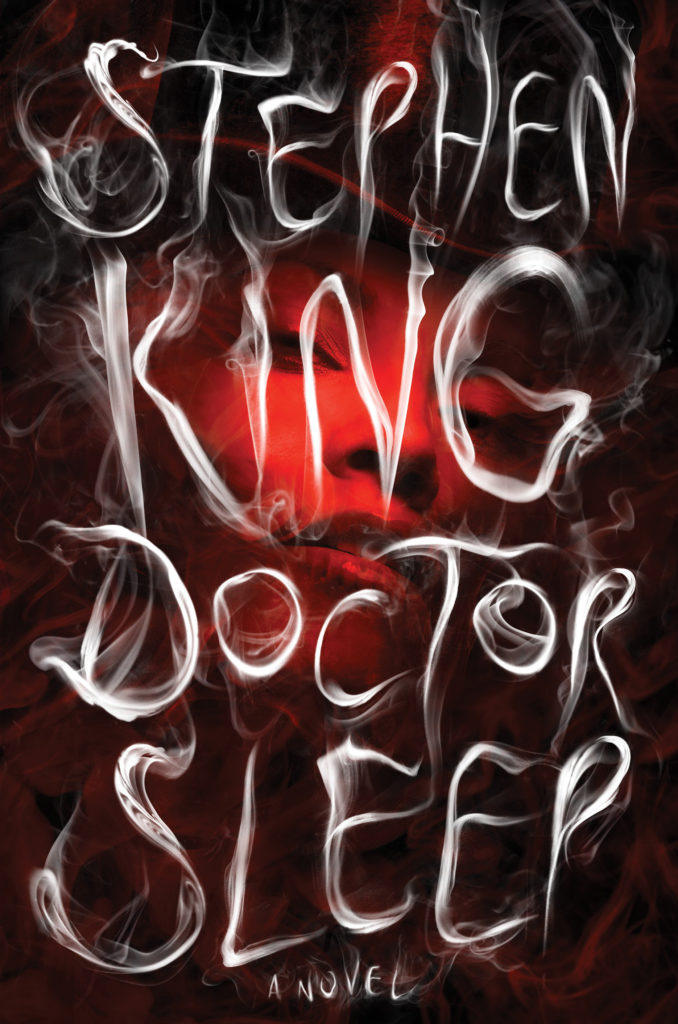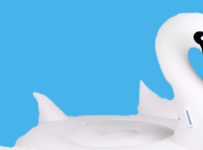
By 2013, it was well and truly clear that Stephen King was his own genre, and that he competes largely with himself. This is likely why, outside of The Dark Tower series and Black House, that he had never really dabbled with sequels until Doctor Sleep. That King chose to make his first major sequel to the book that became one of the most iconic horror films of all time — a film that, coincidentally, he famously really did not like — was daring. Doctor Sleep is the thirty six years on sequel to The Shining, through which King follows up on what happened to Danny after the Overlook Hotel was neutralised. And it works: Doctor Sleep is excellent latter day King, a successor to The Dark Tower, a pre-cursor to Mr. Mercedes, and a novel that doesn’t try to shamelessly ape its predecessor.
In 2013, Dan Torrance is a recovering alcoholic working in a New Hampshire hospice. He uses his Shining to help old people pass away in peace, and he nurses regrets that he is unable to speak aloud. When it becomes clear that a neighbouring town hosts Abra Stone, a twelve year old with the brightest Shine Dan has ever seen, he realises that he has to intervene before the True Knot — an ancient clan of psychic vampires who feed on "steam†— step in themselves.
In the author's note, King warns that "nothing can live up to the memory of a good scare … especially if administered to one who is young and impressionableâ€. Between this and acknowledging that The Shining was written by a "well-meaning alcoholicâ€, Doctor Sleep sets out to be a different novel. Rather than a single-location (literal) potboiler, Doctor Sleep is partly a road story, spread across the expanse of the United States, partly a small town character study, and partly an examination of the make-up of rival ka-tets. There's an argument to be made that Doctor Sleep is almost a companion piece to the Dark Tower cycle and, God help us all, that argument is going to be made. After all, it was written in dialogue with The Wind Through the Keyhole, which won an online poll over which book King should write first. Obviously both came to fruition, and Roland has never truly left the minds of King or his Constant Readers.
Doctor Sleep does not simply place Dan Torrance in 2013 without ceremony: he begins the novel as Danny, loses the diminutive along the way, and lands himself in Frazier with enough time to properly settle in for the first third of the novel. No longer constrained to thoughts captured in CAPITAL LETTERS, Dan matures realistically, albeit uncleanly. The Shining renders him not exceptional but pitifully prosaic, reduced by the alcohol habit that he uses to control his visions.
Part of King's mission statement for Doctor Sleep was "what would have happened if Jack Torrance had Alcoholics Anonymous instead white knuckling his alcoholism?â€, extrapolated naturally to Dan (Jack, of course, being unavailable for comment). King is clearly familiar with twelve step programs and Doctor Sleep is a comprehensive examination of precisely what works about them: unlike Jack, Dan has a support network and, the reader having already seen him hit bottom, we don't fear that he's going to slip. Despite having similar metaphorical demons, Jack and Dan have different literal demons, seeking different end goals.
The True Knot are some of King's more outlandish villains, which is precisely while they work. Psychic vampires who feed off the "steam†of children with the Shine is a fairly simple concept, but King gives them two more things: they travel the country in a series of RVs, and their leader is Rose the Hat, a redhead who wears a top hat at an impossible angle. King offers a mixture of verifiable history of the True Knot and vague suggestions of who they are and where they've been, and he gives each of them stupid — and occasionally racist — nicknames. The True Knot is a precise mixture of the properly sinister and the sublimely ridiculous and, while they're not villains that we can really feel affection for, it's difficult not to respect their grift.
Doctor Sleep contains two references to its contemporary Joe Hill novel, NOS4A2, but more importantly Dan is heard to utter iconic lines related to something else of King's. Life is a wheel, and so too is ka. Dan becomes the dinh that acts as the spoke for his ka-tet, reluctant though they may be to get involved in his shenanigans. King doesn't make the mistake of over-explaining everything as he has in more recent works: the scenes where the characters hash out the details of the story do not drag or excessively restate knowledge already known to the reader. It's difficult to believe that King writes without intentionality, and so Doctor Sleep even contains seeds for what would become Mr. Mercedes: Abra's favourite boy band is ‘Round Here, who would achieve notoriety at the Mingo Auditorium the following year.
But King doesn't coast on the memories of The Shining, or his steam punks, or even the welcome blatant references to The Dark Tower: Doctor Sleep is a slow burn, but the character work is deep and the story comes to a head in a spectacular fashion. Psychic cat and mouse is an underrated genre and King plays his hand subtly. It would be easy to accuse it of going a twist too far towards the end, but the elements are so delicately balanced that one is willing to forgive King a lot: he didn't need the cash, but nothing about Doctor Sleep feels cheap.
The King of the 2010s is a different beast indeed to that of the seventies, and his priorities in story telling have changed. Like the best King novels, it culminates into something special. With echoes not just of The Shining but of many of his great works across the years, Doctor Sleep is quintessential Stephen King: combining character work, small town folksiness, psychic vampires, the wheel of ka, and the Shining itself, there's nothing not to recommend here.

